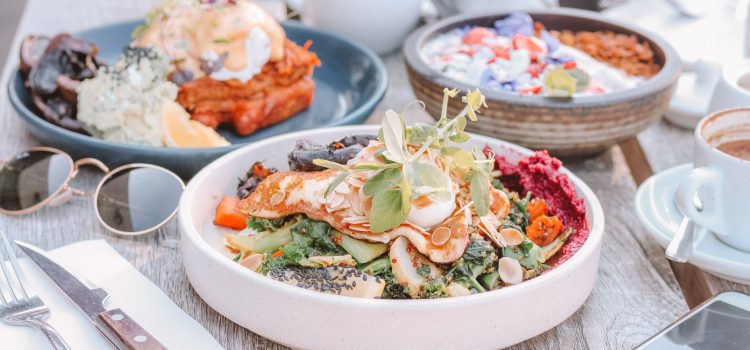
Are you tired of constantly worrying about what’s in your food when dining out? Do you have a food sensitivity that makes eating out a daunting experience? Fret not, because we’ve got some tips and tricks to help you dine out safely! In this blog post, we’ll be sharing our top strategies for navigating restaurants with food sensitivities. From researching menus ahead of time to communicating effectively with the staff, we guarantee these tips will make your next restaurant visit stress-free and enjoyable. So sit back, relax, and get ready to learn how to eat out like a pro!
Understanding Food Sensitivities
If you have food sensitivities, dining out can be a daunting experience. However, with a little planning and preparation, it can be a safe and enjoyable experience. Here are some tips and tricks for dining out safely with food sensitivities:
1. When making a reservation, let the restaurant know about your food sensitivities. This will allow them to make appropriate accommodations for you.
2. When ordering, be specific about your needs. Don’t be afraid to ask questions about ingredients and preparation methods.
3. Be prepared to bring your own food if necessary. Sometimes it is safest to bring your own meal to avoid cross-contamination or other issues.
4. Be aware of potential triggers when dining out. If you are sensitive to certain ingredients, make sure to avoid them when possible.
5. Communicate with your server throughout the meal. If you have any concerns, make sure to let your server know so that they can address them promptly.
Restaurant etiquette
When dining out with food sensitivities, it is important to be aware of restaurant etiquette. Here are some tips and tricks to help you dine out safely:
1. When making a reservation, let the restaurant know about your food sensitivities. This will allow the staff to be aware and make accommodations as necessary.
2. When ordering, be specific about your needs and requirements. Don’t hesitate to ask questions about ingredients and preparation methods.
3. Be considerate of other diners by not making a fuss or drawing attention to your food sensitivities.
4. If you have any concerns or reactions after eating, discreetly inform the manager or staff so they can take appropriate action.
How to order
When dining out with food sensitivities, there are a few things you can do to make sure you have a safe and enjoyable experience. First, call ahead to the restaurant and speak to the manager or chef about your dietary needs. They should be able to accommodate you and make sure that your food is prepared safely. Second, when ordering, be specific about your needs and what you can’t eat. This will help the kitchen staff avoid any mistakes. Finally, when the food arrives, take a moment to inspect it and make sure that everything is as it should be. If you have any concerns, don’t hesitate to ask for a replacement dish. With these tips in mind, you can dine out safely and enjoyably with food sensitivities.
What to avoid
As someone with food sensitivities, dining out can be a bit of a minefield. You never know what ingredients are lurking in your food, and even if you ask the waiter, they may not be able to give you an accurate answer.
To play it safe, there are some things you should avoid when dining out:
-Buffets. All those different dishes sitting out in the open? No thank you. Buffets are a breeding ground for cross-contamination.
-Sauces and dressings. These are often loaded with hidden ingredients that can trigger a reaction. Stick to simple preparations or ask for them on the side so you can control how much (if any) you use.
-Dairy. Dairy is one of the most common food allergens, so it’s best to steer clear of it when dining out. This includes things like cheese, milk, and butter. Check ingredient lists carefully before ordering anything that might contain dairy.
-Gluten. Gluten is another common allergen, and it’s often found in breads, pastas, and sauces. If you’re gluten-sensitive, be sure to ask about gluten-containing ingredients before ordering anything.
Conclusion
Dining out with food sensitivities can be a challenge, but it shouldn’t stop you from enjoying your food-filled evenings. With the right tips and tricks under your belt, you’ll be able to find restaurants that are better for accommodating your dietary needs and keep meals enjoyable for everyone involved. So next time you’re looking forward to an evening outing, don’t forget these helpful dining tips so that you stay safe and enjoy every bite.










